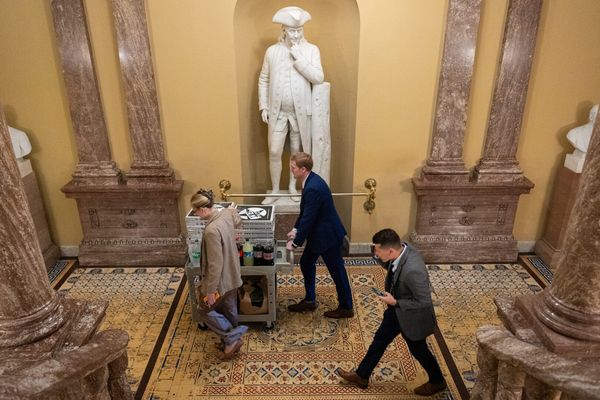
Small-scale fishermen and women from coastal nations in the frontline of the “ocean emergency” have accused world leaders and other decision-makers at the UN oceans conference of ignoring their voices in favour of corporate interests.
More than half of the world’s fish caught for human consumption comes from small-scale fishing communities, yet their contribution to food security and ocean protection is not being sufficiently recognised, they say.

Suzanne Njeri, from Kenya, vice-president of the African Women Fish Processors and Traders Network, which has members from 44 out of 54 African countries, said coastal fishing communities needed “a seat at the table” and were too often sidelined.
“We want policymakers to talk with us, not for us,” said Njeri. “We see the damage to the fish breeding grounds. We are the ones who fight malnutrition. We need more practitioners here to tell their stories.”
Daniel Caniullan, an Indigenous leader, diver and fisherman from Chilean Patagonia, said his community had been fighting to defend their territories for many years.
“There has been an expansion of the salmon-farming industry, which is releasing chemicals and antibiotics into the sea,” Caniullan said. “It is causing an ecological disaster and we are seeing a decrease in marine wildlife.
“There are 400,000 people like me who are affected. We want to bring this to the attention of the UN and the Chilean government. We are the ones dealing with the problem and we have solutions.”

Caniullan wants Chile to implement an existing law that would allow the creation of a protected marine area in Indigenous territory to safeguard livelihoods.
About 120 million people worldwide depend on fisheries, almost 97% of whom live in developing countries.
Many small-scale fishermen and women took part in discussions, panels and other events at the Lisbon conference, which was co-hosted by the governments of Kenya and Portugal. However, they say that, while the final draft declaration makes reference to their contribution to food security and the eradication of poverty, it does not sufficiently recognise their role.

Fishing communities also fear that the draft declaration, which emphasises the intention to “develop and promote innovative financing solutions to drive the transformation to sustainable ocean-based economies”, could undermine this contribution, as they already face competition from tourism and other sectors over access to the ocean.
Margaret Nakato, who represents more than 1,000 fish processors in Uganda and belongs to the World Forum of Fish Harvesters and Fish Workers, said: “Many fishing communities are being pushed out by the prioritisation of other sectors, like tourism and oil and gas, and land use like agriculture, giving us less access to fishing grounds.
“This is also a crisis about food – small-scale fishers provide food, and our livelihoods are under threat. It is a struggle to be heard.”
This week, fishing communities from five continents issued a global call to action, demanding that governments and world leaders protect and increase support for small-scale fisheries.
They are asking decision-makers to protect them from competing “blue economy” sectors; secure preferential access to and increase co-management of coastal areas; ensure the participation of women; and increase support for coastal communities dealing with the impact of the climate crisis.
Gaoussou Gueye, from Senegal, who is president of CAOPA, an African alliance of artisanal fisheries, said: “We are concerned about the marginalisation of small-scale fisheries within the blue economy strategies of our countries.
“We cannot survive if we have to compete with powerful, polluting and environmentally destructive sectors in the marine and coastal environment.”
Lisbon is the last major political conference before the final negotiations on the high seas treaty in August. Forty-nine governments, including the EU’s 27 member states, have committed to finalising a treaty this year.







